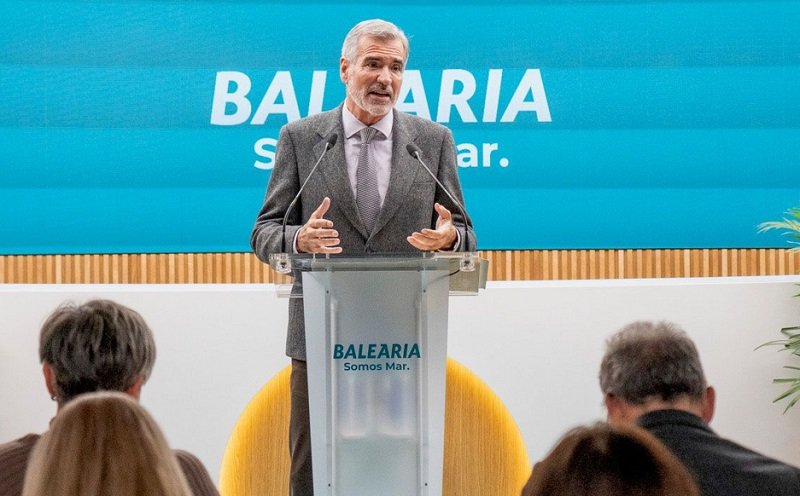Baleària, a global leader in sustainable maritime transport, has unveiled its innovative fast ferry, Margarita Salas, powered by dual-fuel LNG engines, on the Barcelona-Alcúdia-Ciutadella route. The vessel achieves a remarkable 22% reduction in CO2 emissions compared to its predecessor, marking a significant step forward in sustainable maritime transport.
The president of Baleària, Adolfo Utor, expressed his satisfaction with this milestone during a presentation at the Port of Barcelona, attended by over a hundred stakeholders from the shipping industry. This development represents the first high-speed LNG-powered maritime connection from Barcelona to the Balearic Islands.
In 2024, Baleària reached a record for LNG bunkering operations at the Port of Barcelona, tripling last year’s volume. This milestone reflects the company’s growing use of LNG to fuel its fleet, demonstrating its commitment to sustainable maritime transport.

Table of Contents
Pioneering LNG in Maritime Transport
Baleària has been a trailblazer in adopting LNG as a marine fuel since 2017, beginning with a pilot project in Barcelona. Over the years, the company has invested in cleaner technology, integrating 11 LNG-powered vessels into its fleet between 2019 and 2024. This year alone, Baleària conducted 80% of its LNG bunkering operations in Barcelona, equating to an unprecedented 325,000 MWh, tripling last year’s volume.
The Port of Barcelona serves as a vital hub for Baleària, with the company transporting more than half of the cargo and passengers to the Balearic Islands. This year, over 500,000 passengers traveled on Baleària’s routes from Barcelona, reflecting a 12% year-on-year growth.
Margarita Salas: A Leap in Sustainability and Efficiency
The Margarita Salas fast ferry, which began operations in July 2024, connects Barcelona with Mallorca and Menorca. President of Baleària, Adolfo Utor described the ferry as a “qualitative and quantitative leap” in capacity, comfort, and energy efficiency.
Built with an investment of €126 million, the catamaran is designed for versatility and sustainability. Its dual-fuel LNG engines allow operation on various fuels, including natural gas and future renewable sources. The ship is expected to cut annual carbon dioxide emissions by 13,000 tonnes, aligning with Baleària’s commitment to achieving decarbonization by 2050.
The ferry’s technical features include a capacity of 1,200 passengers and 425 vehicles, two passenger decks, and advanced technologies to enhance comfort by minimizing vibrations and noise. The vessel has a service speed of 35 knots and has already received high passenger satisfaction ratings, with an impressive score of 8.8 for its services on Balearic routes.
Collaboration with the Port of Barcelona
José Alberto Carbonell, President of the Port of Barcelona, highlighted the synergy between the port and Baleària in driving sustainable transport. “Together, we pioneered LNG adoption through a pilot project, and we continue to work toward zero-carbon goals,” said Carbonell. He also emphasized ongoing investments, including connecting ships to the port’s renewable energy grid.
Honoring Scientific Legacy
Named after pioneering Spanish biochemist Margarita Salas, the ferry celebrates her contributions to molecular biology. Lucía Viñuela, her daughter and president of the Margarita Salas Foundation, commended Baleària for this tribute, stating it symbolizes the importance of recognizing women’s achievements in science and inspiring future generations.
EU Support for Sustainability
The construction of Margarita Salas was partly funded through the European Union’s Next Generation Funds under the Recovery and Resilience Facility (RRF), showcasing the EU’s commitment to supporting sustainable transport projects.
This achievement reinforces Baleària’s position as a frontrunner in sustainable maritime innovation, setting new standards for the industry.
About Baleària
Baleària is a global leader in sustainable maritime transport, operating a fleet of eco-efficient vessels and driving innovation in LNG adoption. The company is committed to enhancing connectivity between the mainland and the Balearic Islands while prioritizing environmental stewardship and passenger comfort.
Source Baleària

